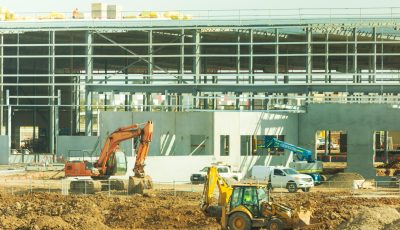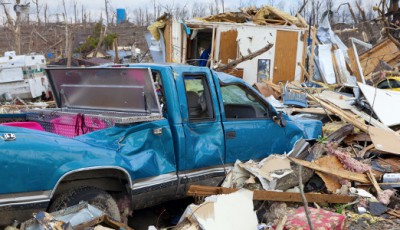Climate crisis: a dangerous and intentional delay in political action
Forest ecology, urban ecology, urban soils, Université Laval
Media have reported in recent weeks on the release of the IPCC’s most recent summary report – a final warning report. The authors could not be clearer on the state of the climate. And this menacing tone of scientists is new, even frightening.
Read more: Decarbonization by 2030: an almost impossible goal, but necessary
But why is reaction and political action so lukewarm and slow, despite countless similar reports?
In 2016, Alex Steffen, an American who studies and writes on sustainable development, first used the term “predatory delay” , which can be translated as “dangerous and intentional delay”. This term refers to intentional political tactics put in place with the aim of slowing down or blocking concrete action to counter climate change and abandon petroleum products.
While this political behavior was clearly pointed out 7 years ago, it is even more important to talk about it today. For what ? Because it is clear that we do not have much time left to modify the trajectories of the worst climate scenarios. It is not inaction we are talking about here, but rather an intentional delay program that can be observed both in Quebec and elsewhere in the world.
Expert in carbon stabilization in ecosystems, I am also eager for solutions to accelerate action to reduce greenhouse gas emissions in order to curb climate change.
Redirect responsibility
A 2020 study , by a group of social scientists from Berlin, England and the United States, caught my attention this week, following the presentation of the IPCC report. The article dissects in depth the four types of political discourse that characterize dangerous and intentional delay and the strategies associated with it.
A first discourse, very frequent, aims to redirect the responsibility away from politicians, for example on the individual who must limit his carbon footprint by buying an electric vehicle. This type of discourse also implies that other countries emit more GHGs than ours, or that other provinces or countries will follow suit if we are the first to take action. This is all intentional delay.
Other types of discourse include proposing ineffective or non-transformative solutions in order to distract people from concrete actions (aiming at reducing emissions). Examples one can read about include electric planes, fusion power, or direct capture of carbon from the atmosphere. These measures are, for the moment, utopian or embryonic.
Fine talkers, small doers
Another angle to this discourse includes the assertion that fossil fuels are part of the solution. Or the proliferation of emission compensation programs, within which fraud is on the increase . A recent survey showed that Verra, which dominates the certification of carbon credits in the voluntary market, would have no impact on the climate for 90% of its projects.
The establishment of long-term targets (such as achieving carbon neutrality by 2030 ) without concrete means to achieve it is also part of this type of discourse. And Canada is a champion . For example, we have just approved an oil and gas megaproject ( Bay du Nord ), even though our performance in meeting the Paris Agreement targets is highly insufficient.
Finally, proposing “step-by-step” solutions, which are very cautious, but keep all power structures in place without transformation, is another tactic. This discourse is characterized by beautiful messages but little progress. An example is the promotion of sustainable aviation fuels, which are blended with standard fuels. But at the moment, they only represent less than 1% of the market , and several production chains are not really sustainable.
Limit costs, but at what price?
We can also hear that the costs are too high; it would be unfair for Quebec society or for individuals to pay so much for solutions aimed at reducing emissions. It is a very successful speech, because a vocal part of the population is in complete agreement that we already pay too much tax and that the government intervenes too much.
We talk about short-term costs and ignore, for the benefit of the next election, the benefits that these actions could have on our health or on the resilience of communities in the long term. This political discourse relies on maintaining the standard of living of citizens or on the loss of jobs to justify the intentional delays. Instead of trying to educate society about the real risks ahead, or working on social justice to address environmental inequities, we choose a very conservative position which is a delay tactic.
For the sake of future generations
Another discourse that can be launched consists in calling into question the possibility of finding solutions aimed at reducing emissions. It can be implied that the necessary changes are impossible, that societies would be too disturbed by such transformations. This discourse denies emissions mitigation to suggest that we must adapt to the resulting climate changes. And, often, the idea that new technologies will help us achieve this future adaptation is reinforced. ” We’ll see later “. This discourse does not engage society towards solutions that exist, but it distracts society towards solutions that do not yet exist.
These speeches and their variations are very convincing, and have served politicians in Quebec and Canada well for decades. The authors of the study suggest that identifying intentional talk of delay could help people resist it and organize themselves differently in the face of these strategies.
But Alex Steffen, who coined the term intentional delay, is candid. He suggests that this delay mostly benefits politicians and older individuals, who are unaware of their obligations to society in general, and to future generations in particular.
Let’s be frank, identify the intentional delay, and talk about it.
This is a translation of an article that appeared in The Conversation on May 8, 2023,



